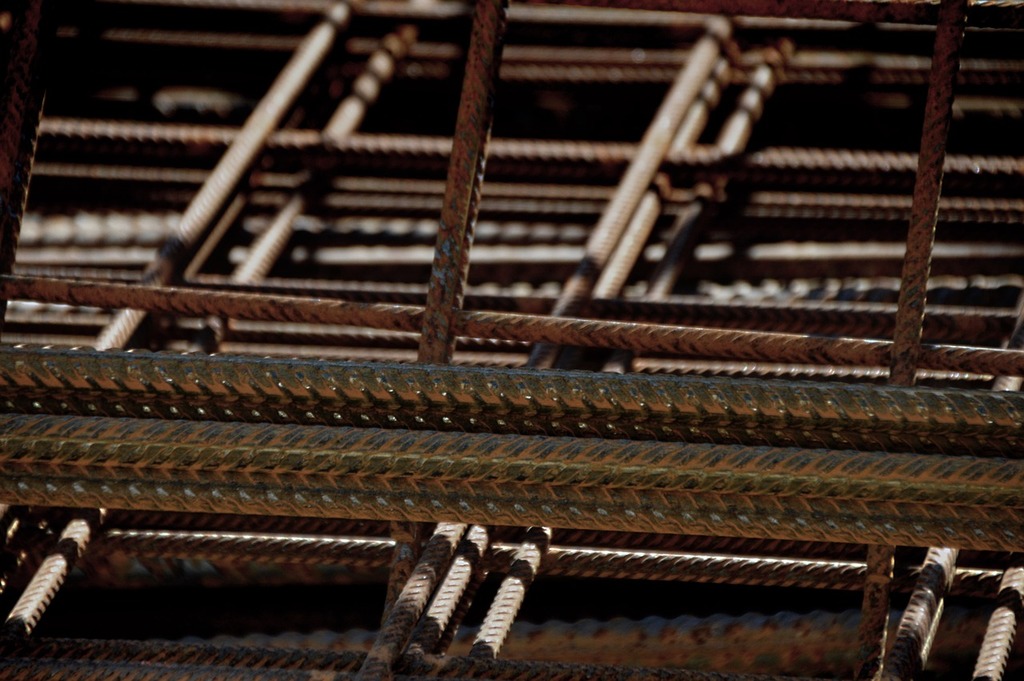|
|
Rebar vs. Wire Mesh: Which Steel Reinforcement Option Is Best for Preventing Concrete Cracks and Shifting in Eugene’s Moist Climate?
|
In Eugene’s moist climate, where preventing concrete cracks and shifting is vital, rebar is generally the more effective steel reinforcement option. Rebar offers high tensile strength, enhancing the concrete’s ability to handle tension and bending stresses, and when properly coated, it resists corrosion better than wire mesh in wet environments. While wire mesh is easier to install and cost-effective, it lacks the superior strength and durability rebar provides, especially in high-load applications like driveways and foundations. For long-term structural integrity in a moist climate, rebar’s benefits outweigh those of wire mesh, making it the better choice to prevent cracking and shifting. To understand the full implications and how to choose between these options for your specific project, consider the detailed advantages and disadvantages of each.  Rebar vs. Wire Mesh: Which Steel Reinforcement Option is Best for Preventing Concrete Cracks and Shifting in Eugene’s Moist Climate?When choosing between rebar and wire mesh for concrete reinforcement in Eugene’s moist climate, consider the project’s specific needs. Rebar, with its superior strength and durability, is ideal for structural applications like foundations and driveways, where it can effectively resist tension and soil movement. Wire mesh, although easier and less expensive to install, is better suited for lighter, non-structural projects such as patios and sidewalks, as it provides adequate reinforcement against cracking in less demanding environments. In Eugene’s wet conditions, the choice between these two options hinges on the level of structural integrity and load-bearing capacity required. Rebar (Reinforcing Bar)When considering rebar for concrete reinforcement in Eugene’s moist climate, you need to weigh its advantages and disadvantages. Rebar offers superior strength and durability, distributing loads evenly and preventing premature cracking, which is vital for structural integrity in foundations and driveways exposed to tension and soil movement. However, rebar is prone to oxidation and rust when exposed to moisture, potentially reducing its durability and requiring additional measures to prevent corrosion. Rebar is best used in structural applications where high load-bearing capacity and resistance to environmental deterioration are essential. Advantages of Rebar in Eugene’s Moist ClimateIn Eugene’s moist climate, where concrete is constantly exposed to moisture, temperature fluctuations, and soil movement, rebar stands out as a superior reinforcement option due to its robust advantages.
Disadvantages of Rebar in Eugene’s ClimateWhile rebar offers significant advantages regarding structural integrity and durability, it also has some drawbacks that are particularly relevant in Eugene’s moist climate. Rebar is labor-intensive and time-consuming to install, which can delay project timelines. Additionally, it is susceptible to corrosion over time, especially in moist environments, which can degrade its structural integrity and require costly maintenance or replacement. This makes it important to weigh these factors when choosing rebar for concrete solutions in Eugene. Best Use for RebarRebar is the go-to choice for projects in Eugene that demand high structural integrity and durability, particularly in areas subjected to significant tension and soil movement.
Wire Mesh (Welded Wire Reinforcement, WWR)When considering wire mesh for your concrete project in Eugene’s moist climate, you’ll find several advantages. Wire mesh is cost-effective and easier to install, making it a viable option for lighter, non-structural applications like patios and sidewalks. However, it may not offer the same level of strength as rebar, which could be a disadvantage in areas with significant soil movement or heavy traffic. Advantages of Wire Mesh in Eugene’s Moist ClimateIn Eugene’s moist climate, where concrete is constantly exposed to moisture and temperature fluctuations, wire mesh offers several advantages as a reinforcement option.
Disadvantages of Wire Mesh in Eugene’s ClimateIn Eugene’s moist climate, while wire mesh offers several benefits as a concrete reinforcement, it also has some significant disadvantages that need to be considered. Wire mesh can be vulnerable to corrosion, especially in humid conditions, which can degrade its structural integrity over time. Additionally, it may require more maintenance to prevent rust and guarantee it remains effective in reinforcing the concrete in Eugene. Its rigid panels can also make installation on uneven terrain challenging, increasing costs and time. Furthermore, wire mesh is less suitable for high-stress areas like driveways, where rebar’s superior strength is often necessary. Best Use for Wire MeshDespite the disadvantages of wire mesh in Eugene’s moist climate, it remains a viable option for certain types of concrete projects. Here are some of the best uses for wire mesh:
Comparison of Rebar vs. Wire Mesh in Eugene’s Moist ClimateWhen choosing between rebar and wire mesh for concrete reinforcement in Eugene’s moist climate, you need to take into account the project’s specific needs and the environmental conditions. Rebar, with its superior strength and durability, is ideal for structural applications like foundations and driveways, where it can withstand tension and soil movement effectively. In contrast, wire mesh is better suited for lighter, non-structural projects such as patios and sidewalks, offering easier and less expensive installation while still providing adequate reinforcement against cracking and shifting. Rebar vs. Wire Mesh for Concrete Projects in EugeneIn Eugene’s moist climate, where concrete is constantly exposed to moisture and potential soil movement, choosing the right steel reinforcement is crucial for preventing cracks and shifting. When deciding between rebar and wire mesh for your concrete projects, consider the following:
|
|